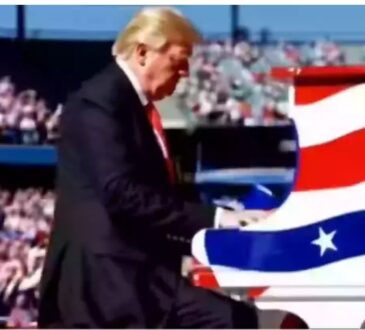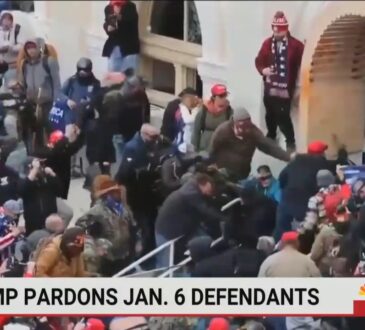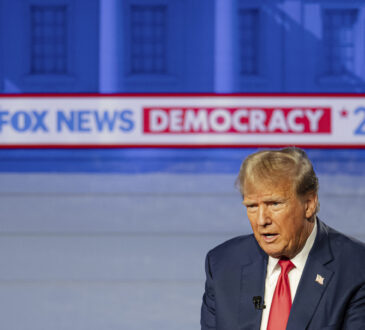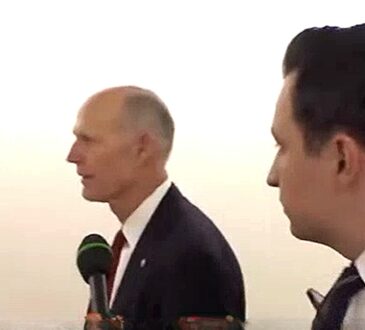Volodymyr Zelensky hits out at Donald Trump with scathing five words after war blame rant

Ukrainian President Volodymyr Zelensky has hit back at Donald Trump after the U.S. President claimed that Ukraine started the war with Russia, accusing Trump of living in a “disinformation bubble” and being fed bad information. Trump’s comments, which have sparked widespread alarm, suggested that Zelensky “could have made a deal” to avoid the conflict and questioned whether the Ukrainian leader should even be in charge. These remarks come amid growing concerns that Trump is preparing to capitulate to Russian President Vladimir Putin, leaving Ukraine vulnerable.
Zelensky responded firmly, stating, “Unfortunately, President Trump, with all due respect for him as the leader of a nation that we respect greatly… is living in this disinformation bubble.” He warned that there is a “misinformation circle around President Trump,” suggesting that representatives from Hungary and Slovakia may be feeding him false information. Zelensky expressed deep concern, saying, “This is all concerning. Everything they are doing is to make sure that Ukraine is weak.”
Trump’s comments have drawn sharp criticism from international figures, including former UK Defence Secretary Sir Ben Wallace, who accused the White House of repeating Russian propaganda. Wallace remarked, “I know Mar-a-Lago is quite close to Disney World, but that was pure Disney in both sort of facts and reality.” He added that the Kremlin would be pleased to see the White House echoing its narrative, particularly the false claim that Ukraine started the war.
The controversy comes as peace talks between the U.S. and Russia opened in Riyadh, Saudi Arabia, with Ukraine and other European nations notably excluded. Zelensky has made it clear that he will not accept any deal forced upon Ukraine, especially one that compromises its sovereignty or territorial integrity. However, the Trump administration has already signaled that Ukrainian membership in NATO and a return to its 2014 borders—before Russia’s illegal annexation of Crimea—are “unrealistic” goals, even before negotiations began.
Trump’s remarks have further strained relations with Ukraine, as he appeared to question Zelensky’s legitimacy, claiming the Ukrainian leader has a mere 4% approval rating and suggesting that the country is in chaos. “We have a situation where we haven’t had elections in Ukraine, where we essentially have martial law,” Trump said. “The leader in Ukraine, I hate to say it, he is down at 4% approval rating, and the country has been blown to smithereens.”
Meanwhile, U.S. Secretary of State Marco Rubio, who is leading the talks with Russian Foreign Minister Sergey Lavrov, has suggested that ending the war could open “incredible opportunities” for the U.S. to partner with Russia. Lavrov, for his part, claimed that the U.S. is beginning to “better understand” Russia’s position, a statement that has raised eyebrows among Western allies.
Former Australian Prime Minister Tony Abbott criticized Trump’s approach, calling it a potential “sellout” and emphasizing that Putin is the aggressor in this conflict. “Let’s be very clear. Putin started this war. Russia started this war. And anyone who thinks otherwise is living in fantasy land,” Abbott said. He warned that any peace deal must not reward Russian aggression.
The situation has also drawn a response from UK Labour leader Keir Starmer, who warned that any lasting peace in Ukraine would require a U.S. security guarantee. Starmer stressed that without American support, Putin would likely strike again, undermining any fragile agreement.
As the world watches these developments unfold, the stakes could not be higher. Zelensky’s defiance and Trump’s apparent willingness to accommodate Putin have created a tense and uncertain geopolitical landscape. The question now is whether the U.S. will stand firm with its allies or pursue a path that could leave Ukraine—and the principles of international law—in jeopardy.




